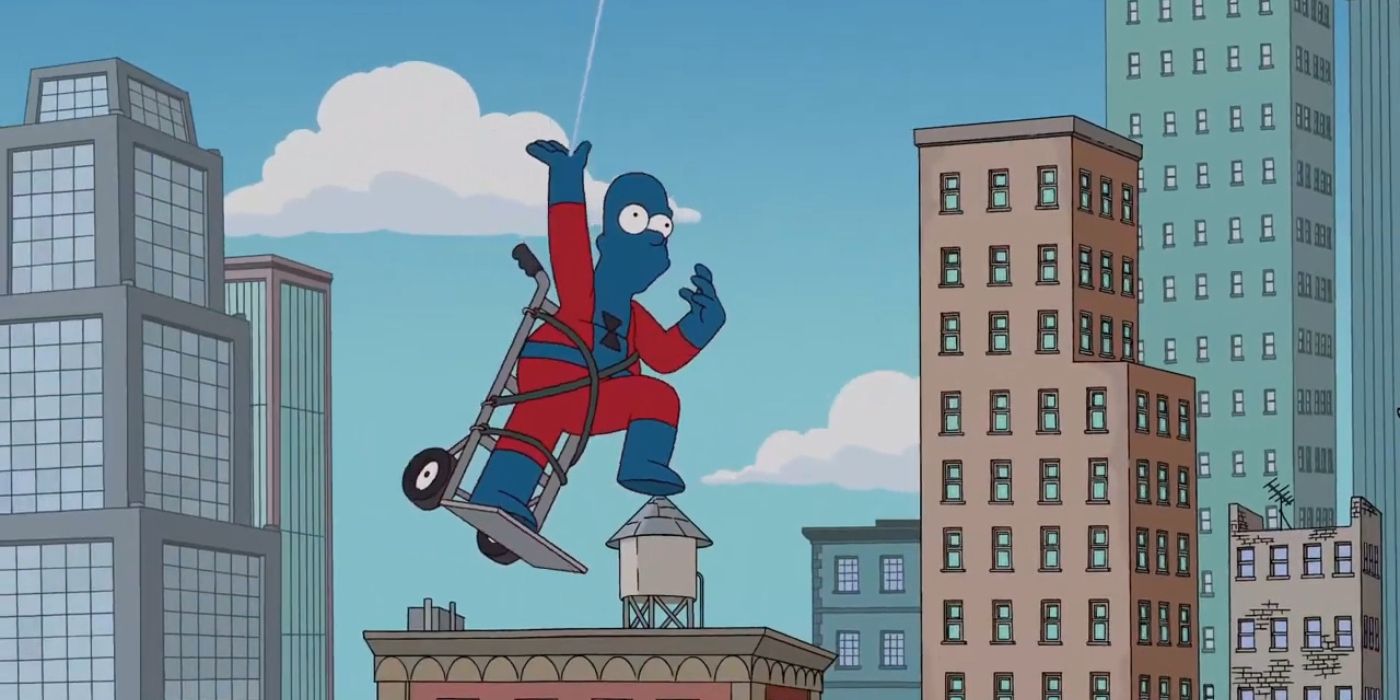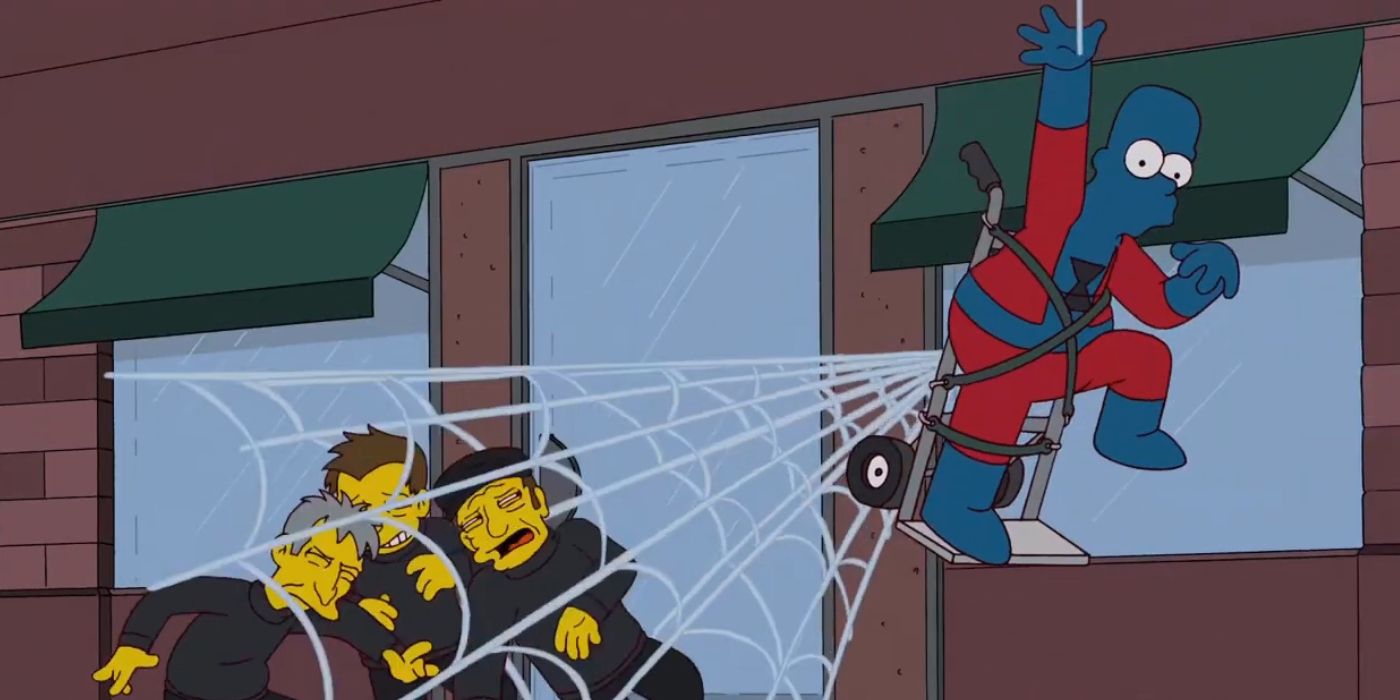The Simpsons has used its 30-plus years on the air to make fun of pretty much everything in the world, using Homer and the rest of the titular family to parody all walks of life. This includes a lot of superhero jokes and satires, ranging from takes on specific characters to mocking the real-world circumstances that go on behind the scenes in creating such characters.
However, one parody stands out for just being so fundamentally odd. One segment from a "Treehouse of Horror" episode transformed Homer into a bizarre parody of Spider-Man despite keeping him completely immobile -- and it's even weirder than it sounds.
Season 23's "Treehouse of Horror XXII" included the short segment "The Diving Bell and the Butterball." The first half of the segment served as a send-up of The Diving Bell and the Butterfly, a serious drama based on the life of Jean-Dominique Bauby. After being bitten by a black widow, Homer ends up trapped in his own body, unable to move due to Locked-In Syndrome. Eventually, Homer finds ways to communicate with his family (via flatulence) and makes peace with his situation, until another spider -- this one radioactive -- also bites him. This imbues Homer with superpowers similar to Spider-Man, albeit a Spider-Man still suffering from Locked-In Syndrome -- meaning Homer is forced to web-swing around Springfield with webs that he produces from his backside while he remains in a single solitary standing position.
"The Diving Bell and the Butterball" is one of the weaker "Treehouse of Horror" segments, and easily one of the most bizarre, poking fun at a life-affirming drama instead of the typical horror and sci-fi parodies that run in the annual Halloween episodes. But the deviation to Spider-Man helps it become even more bizarre. On a certain level, it makes sense that a radioactive spider would be found in Springfield. A frequent gag over the years has highlighted how much radiation is unsafely pumped into the town by the casually nefarious Mr. Burns and the Nuclear Power Plant.
But in the core-Simpsons series, these often lead to debilitating illness -- such as the apparent doomed fate of Mike Scioscia in Season 3's "Homer at Bat." But in the canon-free "Treehouse of Horror," the nuclear fallout can instead grant superpowers -- even if they don't restore Homer to the point where he can actually use his powers. It's also notably not the first time Homer became a superhero, with his brief tenure as Pie Man in Season 15's "Simple Simpson" showcasing how surprisingly effective Homer could be as a costumed do-gooder. Season 13's "I Am Furious Yellow" saw Homer covered in green paint and lashing out with pure rage, allowing him to turn into a non-powered version of the Hulk until Chief Wiggum and the rest of the Springfield police are able to restrain him.
But Homer's time as Spider-Man might be his weirdest. Perhaps it's because it's a "Treehouse of Horror" segment, so the show's typical rules and morality is thrown out the window in lieu of quick laughs. Maybe it's because unlike the other times he became a superhero parody, Homer's stint as a Spider-Man actually saw him develop superhuman powers. Or maybe it's just odd to see someone of Homer's iconic portly frame web-swinging around Spinrgfield in what began as a parody of a far different kind of story. Regardless, in a long-running series that's had a lot of fun poking fun at (and directly referencing) the comics industry and the superhero genre as a whole, Homer's time as a non-brand Spider-Man remains one of its weirdest.




